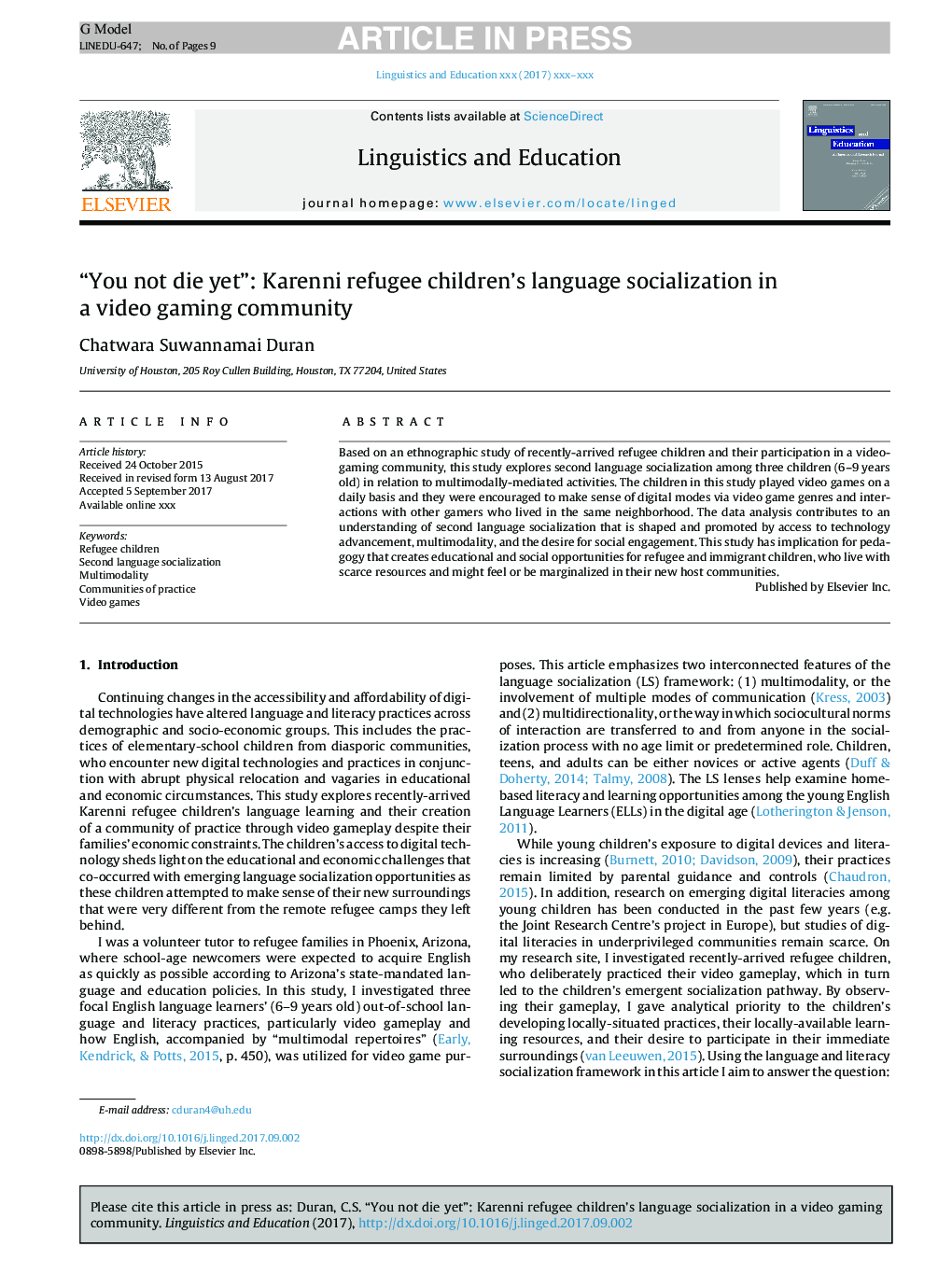| Article ID | Journal | Published Year | Pages | File Type |
|---|---|---|---|---|
| 6845945 | Linguistics and Education | 2017 | 9 Pages |
Abstract
Based on an ethnographic study of recently-arrived refugee children and their participation in a video-gaming community, this study explores second language socialization among three children (6-9 years old) in relation to multimodally-mediated activities. The children in this study played video games on a daily basis and they were encouraged to make sense of digital modes via video game genres and interactions with other gamers who lived in the same neighborhood. The data analysis contributes to an understanding of second language socialization that is shaped and promoted by access to technology advancement, multimodality, and the desire for social engagement. This study has implication for pedagogy that creates educational and social opportunities for refugee and immigrant children, who live with scarce resources and might feel or be marginalized in their new host communities.
Related Topics
Social Sciences and Humanities
Arts and Humanities
Language and Linguistics
Authors
Chatwara Suwannamai Duran,
